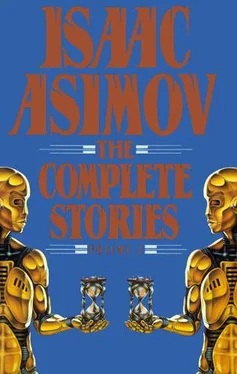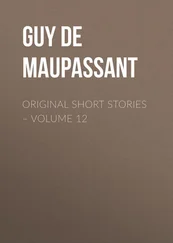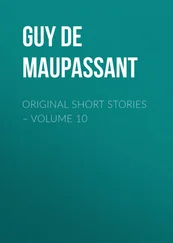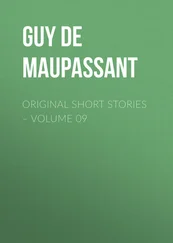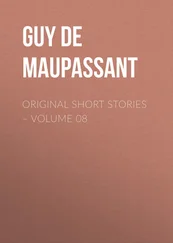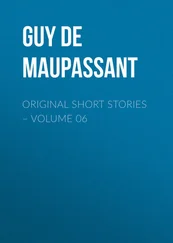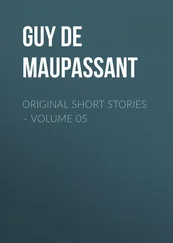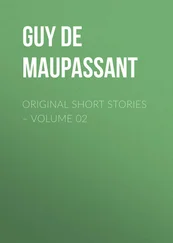Isaac Asimov - Short Stories Vol.1
Здесь есть возможность читать онлайн «Isaac Asimov - Short Stories Vol.1» весь текст электронной книги совершенно бесплатно (целиком полную версию без сокращений). В некоторых случаях можно слушать аудио, скачать через торрент в формате fb2 и присутствует краткое содержание. Жанр: Фантастика и фэнтези, на английском языке. Описание произведения, (предисловие) а так же отзывы посетителей доступны на портале библиотеки ЛибКат.
- Название:Short Stories Vol.1
- Автор:
- Жанр:
- Год:неизвестен
- ISBN:нет данных
- Рейтинг книги:4 / 5. Голосов: 1
-
Избранное:Добавить в избранное
- Отзывы:
-
Ваша оценка:
- 80
- 1
- 2
- 3
- 4
- 5
Short Stories Vol.1: краткое содержание, описание и аннотация
Предлагаем к чтению аннотацию, описание, краткое содержание или предисловие (зависит от того, что написал сам автор книги «Short Stories Vol.1»). Если вы не нашли необходимую информацию о книге — напишите в комментариях, мы постараемся отыскать её.
Short Stories Vol.1 — читать онлайн бесплатно полную книгу (весь текст) целиком
Ниже представлен текст книги, разбитый по страницам. Система сохранения места последней прочитанной страницы, позволяет с удобством читать онлайн бесплатно книгу «Short Stories Vol.1», без необходимости каждый раз заново искать на чём Вы остановились. Поставьте закладку, и сможете в любой момент перейти на страницу, на которой закончили чтение.
Интервал:
Закладка:
Potterley nodded. "I wish you a happy stay here and great success."
That was the end of it, then. Potterley had come uneasily to his senses,
found himself embarrassed and moved off. He stared back over his shoulder once, but the illusion of relationship had gone. Reality was quite real once more and he was angry with himself for having fallen prey to his wife's foolish talk about Laurel.
But a week later, even while Araman was talking, the thought of that young man had come back to him. An instructor in physics. A new instructor. Had he been deaf at the time? Was there a short circuit between ear and brain? Or was it an automatic self-censorship because of the impending interview with the Head of Chronoscopy?
But the interview failed, and it was the thought of the young man with whom he had exchanged two sentences that prevented Potterley from elaborating his pleas for consideration. He was almost anxious to get away.
And in the autogiro express back to the university, he could almost wish he were superstitious. He could then console himself with the thought that the casual meaningless meeting had really been directed by a knowing and purposeful Fate.
Jonas Foster was not new to academic life. The long and rickety struggle for the doctorate would make anyone a veteran. Additional work as a postdoctorate teaching fellow acted as a booster shot.
But now he was Instructor Jonas Foster. Professorial dignity lay ahead. And he now found himself in a new sort of relationship toward other professors.
For one thing, they would be voting on future promotions. For another, he was in no position to tell so early in the game which particular member of the faculty might or might not have the ear of the dean or even of the university president. He did not fancy himself as a campus politician and was sure he would make a poor one, yet there was no point in kicking his own rear into blisters just to prove that to himself.
So Foster listened to this mild-mannered historian who, in some vague way, seemed nevertheless to radiate tension, and did not shut him up abruptly and toss him out. Certainly that was his first impulse.
He remembered Potterley well enough. Potterley had approached him at that tea (which had been a grizzly affair). The fellow had spoken two sentences to him stiffly, somehow glassy-eyed, had then come to himself with a visible start and hurried off.
It had amused Foster at the time, but now . . .
Potterley might have been deliberately trying to make his acquaintance, or, rather, to impress his own personality on Foster as that of a queer sort of duck, eccentric but harmless. He might now be probing Foster's views, searching for unsettling opinions. Surely, they ought to have done so before granting him his appointment. Still . . .
Potterley might be serious, might honestly not realize what he was doing.
Or he might realize quite well what he was doing; he might be nothing more or less than a dangerous rascal.
Foster mumbled, "Well, now-" to gain time, and fished out a package of cigarettes, intending to offer one to Potterley and to light it and one for himself very slowly.
But Potterley said at once, "Please, Dr. Foster. No cigarettes."
Foster looked startled. "I'm sorry, sir.";,
"No. The regrets are mine. I cannot stand the odor. An idiosyncrasy. I'm sorry."
He was positively pale. Foster put away the cigarettes.
Foster, feeling the absence of the cigarette, took the easy way out. "I'm flattered that you ask my advice and all that, Dr. Potterley, but I'm not a neutrinics man. I can't very well do anything professional in that direction. Even stating an opinion would be out of line, and, frankly, I'd prefer that you didn't go into any particulars."
The historian's prim face set hard. "What do you mean, you're not a neutrinics man? You're not anything yet. You haven't received any grant, have you?"
"This is only my first semester."
"I know that. I imagine you haven't even applied for any grant yet."
Foster half-smiled. In three months at the university, he had not succeeded in putting his initial requests for research grants into good enough shape to pass on to a professional science writer, let alone to the Research Commission.
(His Department Head, fortunately, took it quite well. "Take your time now, Foster," he said, "and get your thoughts well organized. Make sure you know your path and where it will lead, for, once you receive a grant, your specialization will be formally recognized and, for better or for worse, it will be yours for the rest of your career." The advice was trite enough, but triteness has often the merit of truth, and Foster recognized that.)
Foster said, "By education and inclination, Dr. Potterley, I'm a hyperop-tics man with a gravities minor. It's how I described myself in applying for this position. It may not be my official specialization yet, but it's going to be. It can't be anything else. As for neutrinics, I never even studied the subject."
"Why not?" demanded Potterley at once.
Foster stared. It was the kind of rude curiosity about another man's professional status that was always irritating. He said, with the edge of his own politeness just a trifle blunted, "A course in neutrinics wasn't given at my university."
"Good Lord, where did you go?"
"M.I.T.," said Foster quietly.
"And they don't teach neutrinics?"
"No, they don't." Foster felt himself flush and was moved to a defense.
"It's a highly specialized subject with no great value. Chronoscopy, perhaps, has some value, but it is the only practical application and that's a dead end."
The historian stared at him earnestly. "Tell me this. Do you know where I can find a neutrinics man?"
"No, I don't," said Foster bluntly.
"Well, then, do you know a school which teaches neutrinics?"
"No, I don't."
Potterley smiled tightly and without humor.
Foster resented that smile, found he detected insult in it and grew sufficiently annoyed to say, "I would like to point out, sir, that you're stepping out of line."
"What?"
"I'm saying that, as a historian, your interest in any sort of physics, your professional interest, is-" He paused, unable to bring himself quite to say the word.
"Unethical?"
"That's the word, Dr. Potterley."
"My researches have driven me to it," said Potterley in an intense whisper.
"The Research Commission is the place to go. If they permit-"
"I have gone to them and have received no satisfaction."
"Then obviously you must abandon this." Foster knew he was sounding stuffily virtuous, but he wasn't going to let this man lure him into an expression of intellectual anarchy. It was too early in his career to take stupid risks.
Apparently, though, the remark had its effect on Potterley. Without any warning, the man exploded into a rapid-fire verbal storm of irresponsibility.
Scholars, he said, could be free only if they could freely follow their own free-swinging curiosity. Research, he said, forced into a predesigned pattern by the powers that held the purse strings became slavish and had to stagnate. No man, he said, had the right to dictate the intellectual interests of another.
Foster listened to all of it with disbelief. None of it was strange to him. He had heard college boys talk so in order to shock their professors and he had once or twice amused himself in that fashion, too. Anyone who studied the history of science knew that many men had once thought so.
Yet it seemed strange to Foster, almost against nature, that a modern man of science could advance such nonsense. No one would advocate running a factory by allowing each individual worker to do whatever pleased him at the moment, or of running a ship according to the casual and conflicting notions of each individual crewman. It would be taken for granted that some sort of centralized supervisory agency must exist in each case. Why should direction and order benefit a factory and a ship but not scientific research?
Читать дальшеИнтервал:
Закладка:
Похожие книги на «Short Stories Vol.1»
Представляем Вашему вниманию похожие книги на «Short Stories Vol.1» списком для выбора. Мы отобрали схожую по названию и смыслу литературу в надежде предоставить читателям больше вариантов отыскать новые, интересные, ещё непрочитанные произведения.
Обсуждение, отзывы о книге «Short Stories Vol.1» и просто собственные мнения читателей. Оставьте ваши комментарии, напишите, что Вы думаете о произведении, его смысле или главных героях. Укажите что конкретно понравилось, а что нет, и почему Вы так считаете.
